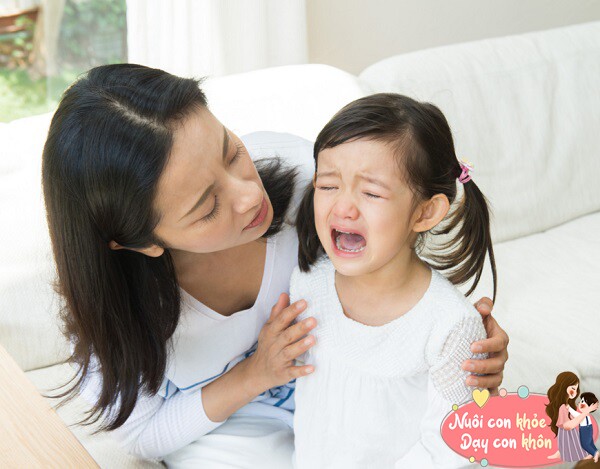The Power of Positive Parenting: Navigating Toddler Tantrums with Professor Li Meijin’s 4-Step Method
Today’s young parents are embracing a more conscious and positive approach to parenting, prioritizing discipline and education. One common challenge that most parents face is dealing with toddler tantrums. Professor of Psychology Li Meijin offers an effective 4-step method to tackle this universal dilemma.

Professor Li Meijin: A Renowned Psychologist’s Guidance on Toddler Tantrums
Professor Li Meijin, a distinguished psychologist from China, brings her extensive experience and in-depth research in child and family education to address this common issue. She emphasizes the importance of saying ‘no’ to children before they turn six, as their crying and tantrums after the age of three are often intentional. However, saying ‘no’ doesn’t mean resorting to hitting or scolding; it’s about guiding them towards surrender and understanding.
Professor Li Meijin shares a personal anecdote about her daughter’s tantrum in a shopping mall over a toy. Instead of reacting impulsively, she employed her 4-step method to handle the situation effectively.
Step 1: Remove the Child from the Trigger Environment
The first step is to physically remove the child from the trigger—whether it’s a toy or a playground—to achieve isolation. This is crucial to help the child calm down and reflect on their actions. By separating them from the source of frustration, they can begin to regulate their emotions and understand that disruptive behavior doesn’t lead to desired outcomes.

It’s important to remove the child from the trigger environment to help them calm down.
Step 2: Bring the Child to a Safe Space
Professor Li Meijin took her daughter home, creating a safe and comfortable space for her to express her emotions freely. Instead of suppressing her cries, she accepted and acknowledged her daughter’s feelings. Understanding that crying is a normal part of child development, she prepared a cozy area with soft toys and pillows, providing comfort and a sense of security to help her daughter calm down.
Step 3: Refrain from Lecturing, Scolding, or Hitting
Once in a safe space, it’s crucial to avoid immediate lecturing or scolding. Allow the child to express their intense emotions without pressure. Crying, shouting, or even rolling on the floor are all natural parts of emotional development. As adults, we must refrain from scolding or hitting, as it is unfair and can cause long-lasting psychological harm. Children don’t process emotions like adults, and during these moments, they need to feel heard and understood.

It’s important to refrain from lecturing, scolding, or hitting the child during a tantrum.
Step 4: Offer Timely Comfort
When the child has cried themselves out and is feeling exhausted, offer a gentle handkerchief to wipe their tears. This simple act conveys care and love. After wiping their face, give them a warm hug, creating a secure and protected space. Hugging provides spiritual safety, and the child will sense the closeness and love from their parent, aiding in calming them down and fostering openness.
Whisper words of encouragement, such as, “I’m here, and you’re safe” or “I understand your feelings.” These words will make the child feel valued and heard, which is crucial for emotional management.

The Impact of Scolding and Hitting on a Child’s Development
Crying is a common emotional expression in children, especially those who haven’t yet learned to communicate their needs. However, it’s important for parents to resist the urge to scold, threaten, or physically punish their children to stop the tears. Research reveals that frequent scolding and hitting can negatively affect a child’s personality and IQ, impacting their imagination and creativity.
On average, children who are frequently scolded and hit have an IQ five points lower than their peers. Brain scans of two children raised with different educational methods showed that the child raised with gentle parenting had fewer dark areas in the brain, indicating improved brain function.

Frequent scolding can impact a child’s personality and intellectual development.
Additionally, scolding and hitting can reduce gray matter in the brain, which is responsible for intelligence and learning abilities. In contrast, gentle parenting is associated with higher brain function and intelligence.
Documentary filmmaker Chu Nhat Quan underscores the importance of controlling our emotions as parents. He reflects on his own parenting journey, emphasizing that sudden emotional outbursts can hurt our children’s young hearts. When feeling angry or frustrated, it’s advisable to take a moment to breathe and regulate our emotions before addressing our children’s issues directly.
Parenting is a lifelong journey, and effective education is built on a foundation of love and respect. By implementing Professor Li Meijin’s 4-step method and adopting a positive and conscious approach to parenting, we can navigate toddler tantrums with grace and understanding.
“Parents, Stop Ordering Your Kids Around”
Many parents believe that strict obedience is key to their child’s development. However, this approach has its drawbacks. While it may instill discipline, it can also hinder a child’s creativity, independence, and critical thinking skills. A balance between structure and freedom is essential, allowing children to explore, make mistakes, and develop their unique personalities and talents.
Mastering Math with Your Child: A Seamless Journey
“Helping Your Child Fall in Love with Math: Overcoming the Fear of Numbers.”
How can we foster a love of math in our children and help them overcome their fear of numbers? It’s time to share tips and tricks to make math fun and engaging for your kids, transforming their relationship with the subject.













































